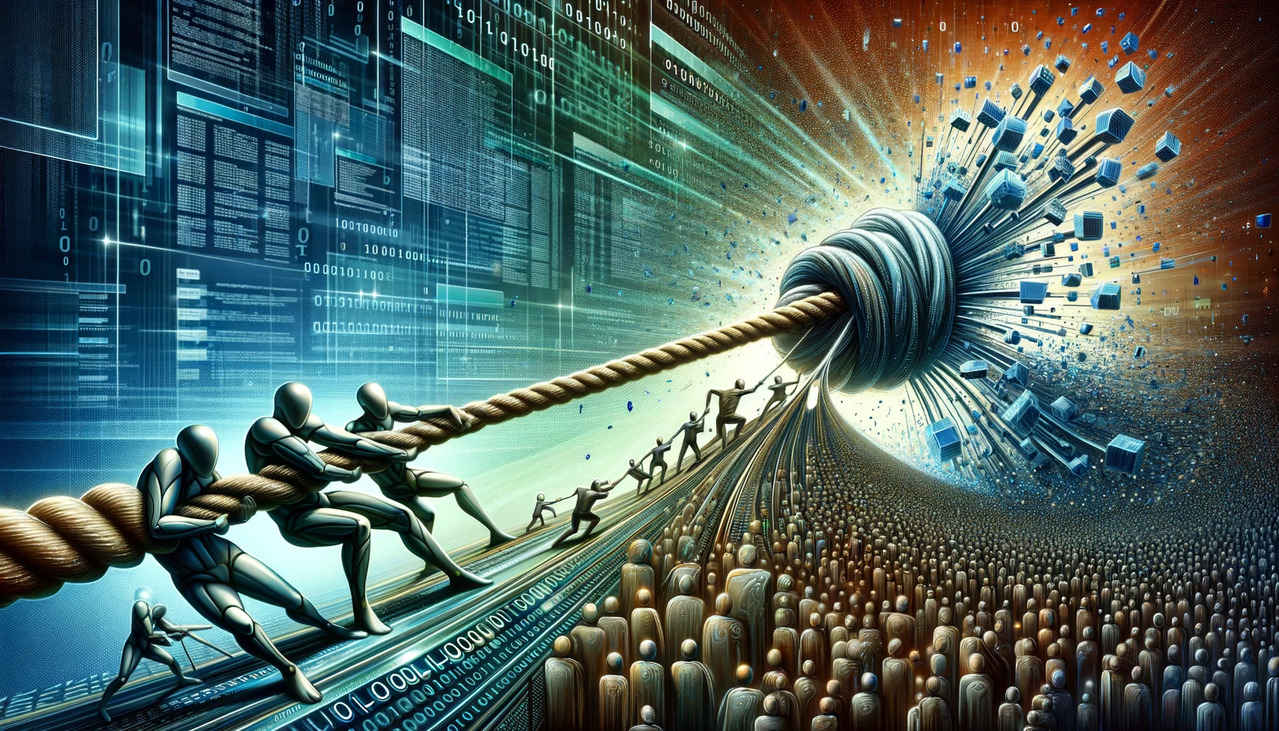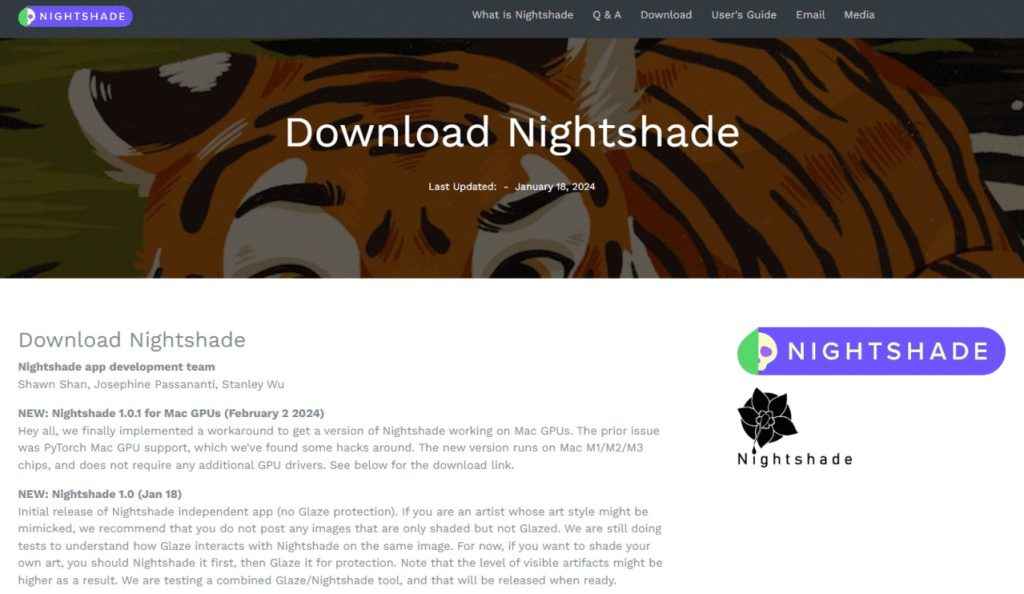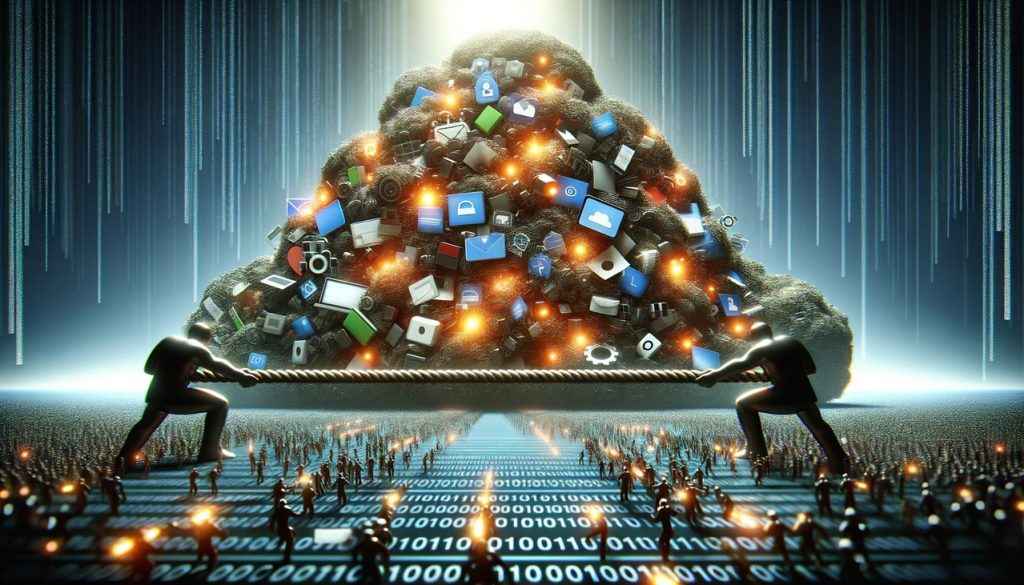The great AI data tug-of-war

As we enter 2024, the realm of generative AI is nothing short of buzzing – not just with the mechanical whir of data processing, but with the rising chorus of discontent from artists and platforms alike. As these disparate voices approach a crescendo, we are witnessing an increasingly unique and complex battleground, one where the lines between innovation, creativity, and privacy blur. Where the very essence of artistic expression and digital rights is being contested, as I contemplate the implications and future trajectories of this rapidly evolving space.
The latest flashpoint in this tug-of-war between the content creators and AI platforms is Nightshade, a tool that artists can use to ‘poison’ AI models training on their artwork. Developed at the University of Chicago, Nightshade represents a growing sentiment among artists: a fundamental need to reclaim control over their work in an era where AI-driven data scraping often occurs without explicit consent. If you think about it, it’s a pushback against the feeling of being usurped by the very technology that was supposed to be a tool, not a competitor.

What’s game-changing about Nightshade is that it’s more than just a defensive mechanism. It’s symbolic of a deeper, more profound conversation about the ethics of AI and the sanctity of creative work. While AI platforms like DALL-E and Midjourney have democratised art creation, enabling stunning visualisations at the prompt of a command, they’ve also raised questions about the originality and ownership of artistic output. When an AI generates a piece of art, whose canvas is it really painting on?
Also read: Our extended reality truly begins in 2024 with the Apple Vision Pro
The debate intensifies when we consider the ethicality of data scraping. For example, Reddit and Twitter, pivotal in training large language models due to their vast repositories of human interaction, are now fighting back against what they perceive as unsanctioned exploitation of their data. Reddit CEO Steve Huffman’s remarks on the value of their data corpus, and Twitter’s Elon Musk setting tweet-viewing limits, and even The New York Times’ lawsuit against OpenAI are testaments to the growing unease among content platforms allowing AI companies to have an unrestricted field day at their expense.
As far as I’m concerned, this battle isn’t just a legal one; it’s cultural and philosophical too. It forces us to ask: What does it mean to create? Is an AI’s interpretation of a writer or painter’s style any less valid than a human’s, if both are essentially deciphering and mimicking patterns? Nightshade, in a way, encapsulates this dilemma. It’s a tool that subverts the AI’s learning process, yet it also highlights the ingenuity of human creativity – the ability to outwit and reshape the tools we create in the name of our own technological progress.

Having said that, we must also acknowledge the indispensable role of data scraping in the development of AI. It’s the backbone of machine learning, enabling AI models to understand and interact in human-like ways. There’s an argument to be made that data scraped from websites, social media posts, and even artistic creations have catalysed advancements in AI, leading to breakthroughs in fields as diverse as medicine and climate science. Wouldn’t slowing down AI progress, therefore, put the brakes on its cascading benefits in all of these critical areas?
As a writer and an observer of this AI tech narrative, I find myself empathising with the artists and platforms. Their work, their data, is an extension of themselves – a digital footprint that they never consented to be a stepping stone for AI development. This tension between the need for expansive data to feed AI and the rights of the individuals and entities that own this data is the crux of the issue.
Also read: Not just a quick Glance: Piyush Shah on India’s growing smartphone habit
So, where do we go from here? The answer is as complex as the problem itself. Nightshade and similar tools are just the beginning – a response to a technology that is evolving faster than our ability to regulate or comprehend its implications. The solution lies somewhere in the balance – a middle ground where AI can continue to grow and learn, but not at the expense of individual rights and creative sovereignty.
I’m certain that there can be no absolutes, no clear right or wrong, in this complex dance of technology, law, ethics and human creativity. The road ahead is uncharted, and the stakes are high. But it’s important to remember that the conversation around AI and data scraping isn’t just about technology. It’s about us – our values, our creativity, and how we choose to protect the essence of what makes us human in the face of relentless technological advancement.
This column was originally published in the February 2024 issue of Digit magazine. Subscribe now.
Jayesh Shinde
Executive Editor at Digit. Technology journalist since Jan 2008, with stints at Indiatimes.com and PCWorld.in. Enthusiastic dad, reluctant traveler, weekend gamer, LOTR nerd, pseudo bon vivant. View Full Profile





